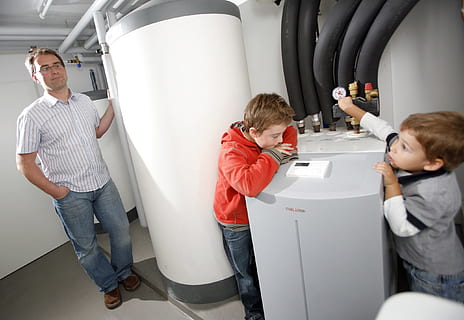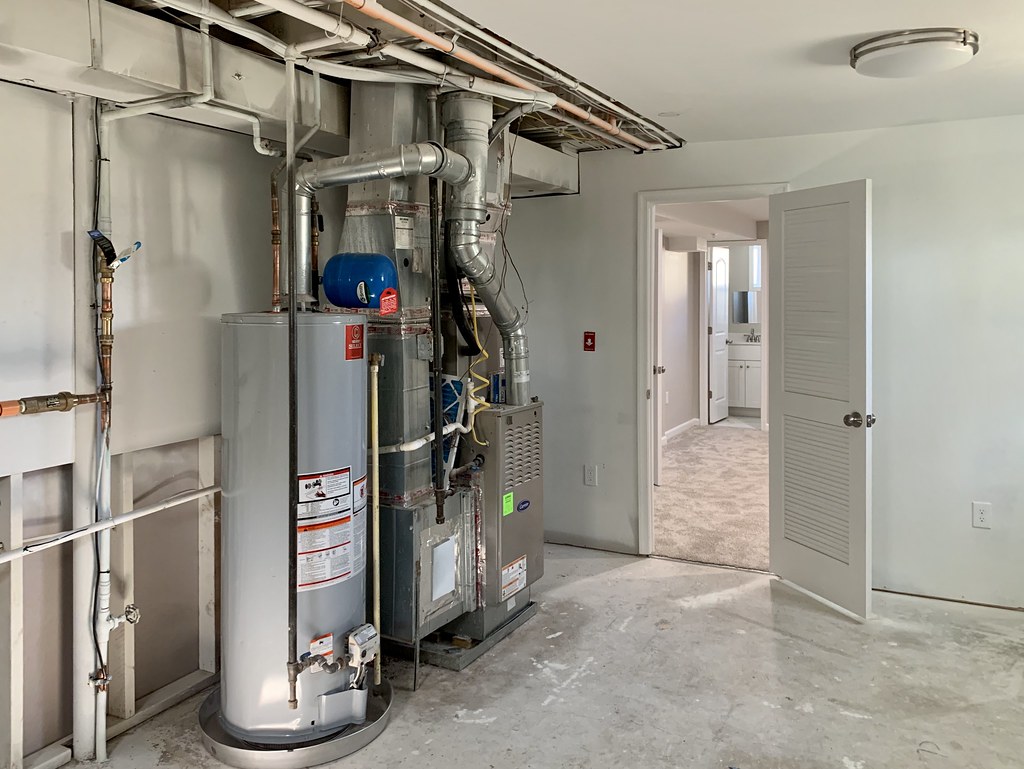In recent years, heat pump technology has seen significant advancements, making them more efficient and suitable for various climates. Newer models incorporate features like variable-speed compressors and advanced defrost cycles, enabling them to operate efficiently even in colder regions. These innovations have extended the use of heat pumps to areas where they were previously less practical.
One of the remarkable advancements in heat pump technology is the integration of variable-speed compressors. Unlike traditional single-speed compressors that operate at a fixed rate, variable-speed compressors can adjust their speed based on the heating or cooling demands. This results in better energy efficiency as the heat pump can fine-tune its output to match the specific conditions, maintaining a consistent temperature without unnecessary energy consumption.
Advanced defrost cycles are another critical innovation. In colder climates, heat pumps can experience frost buildup on the outdoor unit during the heating mode. Advanced defrost systems use sensors to detect frost accumulation and initiate a defrost cycle when needed. This prevents reduced efficiency due to frost and ensures optimal performance, even in freezing temperatures.
Moreover, the integration of smart technology into heat pumps allows for remote monitoring and control. Homeowners can adjust their heat pump settings via smartphones or other devices, optimizing energy usage and comfort. For example, if you’re away from home and unexpected weather changes occur, you can adjust your heat pump settings to ensure that your home remains comfortable when you return. Additionally, some models can work in coordination with solar panels, further reducing energy costs and environmental impact. By harnessing solar energy during the day and using the heat pump to efficiently heat or cool your home, you can significantly reduce your carbon footprint.
Environmental Considerations

In today’s environmentally conscious world, the choice of refrigerant in a heat pump is of utmost importance. Traditional refrigerants like R-22 had a high global warming potential, contributing to climate change. However, modern heat pumps use more eco-friendly refrigerants with significantly lower global warming potential, such as R-410A or R-32. This transition reduces the environmental impact of HVAC systems.
As we look ahead, heat pumps are poised to play a vital role in achieving energy efficiency and reducing carbon emissions. By understanding the components and technology behind these systems, homeowners and businesses can make informed choices to create a more sustainable and comfortable indoor environment.
The Role of Heat Pumps in Reducing Carbon Footprints
The heating, ventilation, and air conditioning (HVAC) industry has been making strides in producing heat pumps that are not only energy-efficient but also environmentally friendly. These systems play a significant role in reducing carbon footprints, which is essential for combatting climate change.
One crucial aspect of heat pump technology contributing to environmental preservation is the choice of refrigerants. Traditional refrigerants, such as R-22, had a detrimental impact on the environment due to their high global warming potential. These refrigerants released greenhouse gases into the atmosphere, contributing to climate change. Fortunately, modern heat pumps use more environmentally friendly refrigerants with significantly lower global warming potential. R-410A and R-32 are among the eco-friendly options in use today.
The reduced global warming potential of these refrigerants aligns with international efforts to reduce greenhouse gas emissions. The transition to eco-friendly refrigerants represents a significant step toward a more sustainable and environmentally conscious future. By selecting a heat pump that uses these refrigerants, homeowners can contribute to a cleaner planet while enjoying efficient heating and cooling.
Another notable advancement is the improved efficiency of heat pumps. Variable-speed compressors, a feature in many modern heat pumps, allow these systems to operate at variable speeds based on the heating or cooling requirements. Unlike traditional single-speed compressors that run at a fixed rate, variable-speed compressors adjust their output to match the specific conditions. This fine-tuning results in better energy efficiency, as the heat pump consumes only the necessary energy to maintain a consistent indoor temperature. For homeowners, this means lower energy bills and reduced environmental impact.
The integration of smart technology is yet another remarkable development in heat pump design. Smart heat pumps enable remote monitoring and control through smartphones and other devices. This feature not only enhances convenience but also helps optimize energy usage. Homeowners can adjust their heat pump settings from anywhere, ensuring that their homes remain comfortable without wasting energy. If the weather unexpectedly changes while you’re away from home, you can make real-time adjustments to ensure your return to a comfortable living space.
In Conclusion
With the continual evolution of heat pump technology, these HVAC systems have become integral in both heating and cooling, providing year-round comfort and energy savings. By recognizing the inner workings and environmental considerations, you can harness the full potential of your heat pump, contributing to a more eco-friendly and energy-efficient future.
As heat pumps continue to adapt to various climates and incorporate advanced features, they stand as a promising solution for reducing carbon footprints while maintaining indoor comfort. Whether you’re in a hot, arid region or a cold, snowy one, there’s a heat pump designed to meet your specific needs, all while minimizing environmental impact. The decision to install a heat pump with eco-friendly refrigerants, advanced technology, and high efficiency can benefit both your comfort and the planet. So, make an informed choice and take part in the global effort to reduce greenhouse gas emissions and combat climate change.

